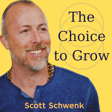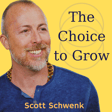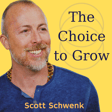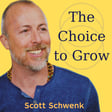
Growing Past Illusions with Kim Barta
In this heart-centered, mind-expanding conversation, Scott and Kim explore how releasing the rigid expectations of how life “should” be opens the door to greater presence, adaptability, and personal freedom. They examine how attachment to ideology—across politics, relationships, and even self-concept—limits our capacity to engage with what is real, emerging, and alive, opening the floodgates for presence, love and fulfillment.
Kim Barta - Psychotherapist, Shadow Work Expert, Evolutionary Guide
Kim Barta is a globally recognized psychotherapist, award-winning speaker, and international workshop leader. He is widely known for his expertise in shadow work, including his meta-model for shadow work, his unique Shadow to Spirit protocol (developed during his 30 years working on a Native American Reservation), and his shadow trilogy: Illuminating Shadow, Healing Shadow, and The the 7 modalities of Shadow work. Kim cofounded STAGES INTERNATIONAL with Dr Terri O’Fallon, an organization that researches and teaches the evolution of consciousness. His new work is focused on launching his meta-model on relationships. Kim founded kimbarta.org, where you can get a free shadow assessment and a free relationship assessment to help you start and deepen your consciousness journey.
Scott Schwenk - Master Coach, Spiritual Teacher, Culture Architect
Scott’s teachings, courses and private mentoring guide leaders, seekers and creatives to explore their deepest selves in service of thriving on all levels of being, both individually and relationally.
Host and creator of the podcast The Choice To Grow, Scott is known for his hugely popular courses and workshops with OneCommune.com, Younity.com, Wanderlust Festivals, and Unplug Meditation, Scott has been catalyzing the inner evolution of others for decades: helping them to grow, transform obstacles into opportunities, and find Love within.
Scott spent several years living and studying in a meditation monastery which introduced him to the core body of Tantric meditation traditions which continue to flow through each of his teachings. Scott continues to study and teach from two key Tantric lineage streams.
Apprenticeships in leadership development, meditation and philosophy training, shadow work/shadow resolution and spiritual awakening are all part of Scott’s development into the thought-leader that he is today. He continues to refine his offerings studying and practicing with key innovators at the leading edges of human development.
Scott’s teachings support the entire person to not only progressively recognize, stabilize and embody our inextricable oneness with the source of creation (Waking Up), but also to resolve the wounds of the past (Cleaning Up), continually expand our capacities for wider and more inclusive perspectives on any moment (Growing Up) and creatively and joyfully participate and collaborate with all of life as a loving thriving human being (Showing Up).
You can receive a free guided meditation and explore Scott’s courses, workshops, retreats, training and master coaching at https://scottschwenk.com and can find him on Instagram @thescottschwenk.



